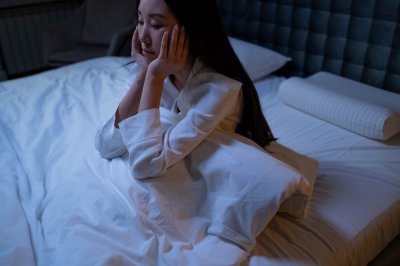Is Sleeplessness Ruling Your Life? Why Insomnia Cures Fail

photo by Cottonbro from Pexels
Sleeplessness can become a lifestyle. It slowly changes our ability to cope. If it goes on long enough, even our personality can start to feel different.
And for those who truly suffer, insomnia cures can feel an endless letdown.
Why don’t they work for some of us?
Insomnia cures for the masses
We stop using screens a few hours before bed, our room is the recommended temperature. We’ve changed our mattress and bought black out blinds. And yet here we are, wide awake again, or getting up very early knowing we won’t get more sleep.
The problem with this scenario is that is assumes that insomnia is an exterior issue. When research consistently points out that sleeplessness is often an interior issue, inextricably connected to our mental health.
But aren’t my moods only bad because of my sleeplessness?
According to a survey by the Mental Health Foundation, almost half us of us here in the UK feel poor sleep is affecting our mental health. More than a third of us feel poor sleep leaves us with anxiety, 43 per cent feel it gives them anger issues, and 42 per cent claim it leaves them stressed and in overwhelm.
On the other hand, who hasn’t found that when we are anxious, stressed, or angry, it’s hard to fall asleep? And for those who suffer major depressive disorder or bipolar disorder, sudden issues with sleep can signify they are about to have another episode. So it comes before the difficult moods.
Sleeplessness and mental health – chicken or egg?

photo by Emin Umana for Pexels
Researchers now see sleep and mental health issues as a ‘bidirectional relationship’, a bit like the chicken or egg conundrum. Sleep problems can be a cause and a consequence of mental health challenges.
Matthew Walker, neuroscientist and director at the Centre for Human Sleep Science at the University of California, Berkeley, says:
“I have not been able to discover a single major psychiatric condition in which sleep is normal. So I think sleep has a profound story to tell in both our understanding, our treatment, and maybe even ultimately our prevention of grave mental illness”.
But how does all this help my insomnia?

photo by Shvets Production for Pexels
If constant sleeplessness is a problem it’s worth taking a good, hard, and honest look at your mental health.
- Have you often suffered depression or anxiety?
- Do you have unresolved childhood issues or traumas?
- Are you comfortable with your emotions or do you tend to avoid or downplay them?
- Do you know how to self soothe when you are upset?
Or do you use bad habits or addictions to avoid your emotions and self? - Is there a history of mental health issues in your family?
- Were you a sensitive child? Are you still oversensitive?
- Was your childhood stable, did you feel loved?
- Do you have people to talk to? Or do you have to deal with everything alone?
Other insomnia cures that really don’t work
Back to neuroscientist Matthew Walker… he has strong viewpoints on some of the insomnia cures out there.
1. Don’t stay in bed if you suffer sleeplessness.
The idea to just lie in a dark, cool room hoping for the best… nope. Walker actually suggests that it’s better to train the brain to see the bedroom as only for sleep. If you can’t sleep it’s better to get up and go to another room and do a quiet activity like reading.
2. Don’t rely on sleeping pills.
He isn’t optimistic about prescription sleeping pills. They sedate you but don’t actually provide real sleep, or any of the restorative benefits of real sleep.
3. And don’t use alcohol to knock yourself out before bed.
It’s the same issue. Alcohol a sedative, which might effectively knock you out. But again, it’s not a naturalistic sleep. And it blocks your REM sleep which is critical for mental health.
What sorts of talk therapy can help me sleep?
So can talk therapy help? Actually, yes. If you experienced childhood trauma or neglect, then a therapy that manages your negative thinking would be a good place to start. Cognitive behavioural therapy (CBT) is often recommended.
A research overview looking at 13 trials involving over 1500 adults concluded that participants who had had undergone at least four to six sessions of CBT therapy struggled much less with insomnia.
There are also newer therapies that are a bit like brain training. You don’t have to endlessly talk about your past, instead they work to stabilise your emotional reactions. This means your anxiety lowers and you can cope better. These include eye movement desensitisation and reprocessing (EMDR), clinical hypnotherapy, and brain working recursive therapy (BWRT).
Mindfulness for sleeplessness
And don’t overlook mindfulness, a tool used by many therapists nowadays in their work with clients.
A 2019 research overview concluded that mindfulness meditation was effective for some forms of insomnia, and that over the long term it competes in effectiveness with other evidence-based insomnia treatments.
And Walker, who admits as a scientist he actually was suspicious of meditation, now actually recommends it. Why not try mindfulness-based cognitive therapy (MBCT), which combines the best of CBT with the power of present-based awareness?
Time to stop the anxiety and start sleeping again? We connect you with some of London’s most highly rated sleep counsellors. Or use our therapy booking site to find UK-wide talk therapists and online counsellors now.
 Andrea M. Darcy is a mental health and wellbeing expert and personal development teacher with training in person-centred counselling and coaching, as well as a popular psychology writer. Follow her on Instagram for useful life tips @am_darcy
Andrea M. Darcy is a mental health and wellbeing expert and personal development teacher with training in person-centred counselling and coaching, as well as a popular psychology writer. Follow her on Instagram for useful life tips @am_darcy




